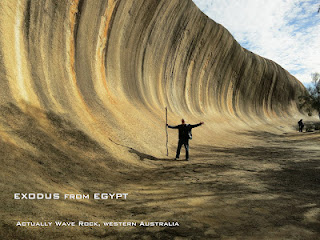Wednesday, June 21, 2023
Echoes of ancient Egypt on the far side of the world
We made an exodus from the big city to the wilderness of Australia, where I became a writer on the road.
This time my wife and I journeyed in search of mystery across the world’s biggest island continent.
We travelled in a Mercedes Benz motor home.
And there I wrote close to fifty novels, mostly about ancient Egypt, but several about the mystery of Australia (The Poisoned Well, Hero Virus and Lightning Ridge.) Proving, if nothing else, that I could write books on the dark side of the moon.
Ironically, Australia has not been an escape from my heartland of Egypt or from Africa for that matter.
Echoes are everywhere.
Deserts like Egypt, acacia and baobabs trees like Africa’s, crocodiles, the white ibis bird, symbol of the Egyptian god Thoth who features in many of my novels.
The bird’s curved surgical beak, white feathers and ugly-elegant black head and neck like a walking stick handle constantly appear in my vision like a living hieroglyph.
Sadly, the African sacred ibis went extinct in Egypt around 1850. Yet today, the bird's close kin, the Australian white ibis (classified as the same species until the 1990s), roams freely across the continent.
The sacred white ibis features most notably in The Ibis Apocalypse, my archaeological thriller novel about the so-called Book of Thoth, said to have been written by Thoth, god of magic, wisdom, writing and science and in this novel the forbidden tome of magical power took the form of a stone tablet.
As the hero character, renegade Egyptologist Anson Hunter remarks:
“Like the Bible, Egyptian religion and mythology tells us that Thoth was the first example of the divine mind, the logos, or the ‘word’ of creation as Christians call it. He was known as the master of wisdom, writing and time, symbolised by the sacred ibis and sometimes by the dog-faced baboon.”
“A bird and a baboon as the god of wisdom?”
“Not so unexpected. Have you ever looked at an ibis? The curve of its beak echoes a crescent moon, or perhaps the rim of an eclipse. Watch the measured way an ibis strides, picking out small fish, snakes, frogs and insects like a master scribe judiciously selecting his words. Thoth was also the god of time and measurement. Picture the way the ibis strode the fields of Egypt, pace by measuring pace, like a scribal surveyor of ancient times re-measuring the land and setting boundaries after mud from the inundation covered the river banks.”
Subscribe to:
Post Comments (Atom)
-
Meet the alternative Egyptologist... Kindle and paperback
-
Authorities see it as a modern day ancient Egyptian curse - the curse of cultural theft for cash to fund terrorism. The U.S. Department o...
-
Fiction on Amazon Kindle (and paperback) GET LOST in the mysteries of ancient Egypt. In fiction. The Anson Hunter series. Meet f...
-
**** on Goodreads "HATHOR'S HOLOCAUST" second in the series of Ancient Egyptian adventure mystery thrillers. Can a ren...
-
Is it simply to find them before the wrong people do? Or is it part of a deeper search?
-
"Murder in fourteen parts?" Jon said. The bleak atmosphere of the stainless steel zone wrapped itself around them like the co...
-
The secret of Egypt's Great Lost Labyrinth of pharaoh Amenemhat III... and the conspiracy of The Smiting Texts Can a reneg...














No comments:
Post a Comment